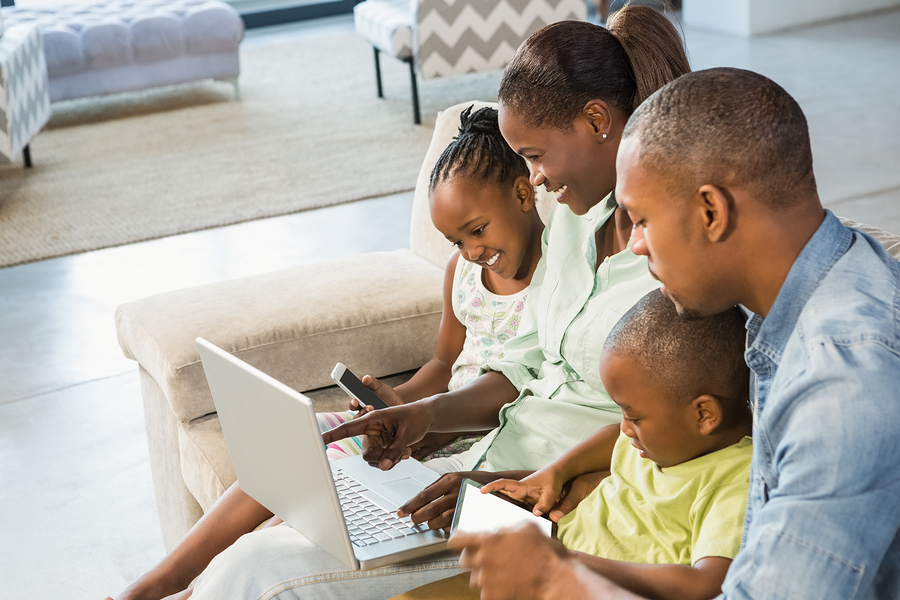
“Mom, my throat really hurts. I’m going to google Caribbean Passion to get a recipe for a smoothie.” My son’s favorite smoothie shop makes a tropical sensation with mangos, bananas, kiwis, and strawberries aptly named Caribbean Passion.
“Sure, sounds like a great idea to soothe that hurting throat.
As soon as the words left my mouth, I realized my mistake. “WAIT! Add ‘smoothie’ in the search box.” I quickly scooted across the kitchen to join my then 11-year-old at the computer. A conversation with a friend had come back to me. She had been investigating venues with rock climbing walls for her daughter’s birthday party. The search was going well until she entered Dick’s in the search box for the local sporting goods store and up popped a number of porn sites. This was not at all what she expected!
Keeping kids safe in a technology driven culture is daunting. Computers, tablets, and smartphones make virtually anything available. The world is just a click away. How do we protect our kids? Here are a few ideas to guide you along the way.
• Open communication. Talk to your kids about what’s appropriate and what’s inappropriate online. Remind kids what’s posted online is forever. The photos posted online are public, owned by Facebook, Instagram and other social media sites. Schools of higher education and future employers research candidates online. Discuss what impression the online presence will leave. Even “private” groups on social media for friends are not totally private. Respect is key, for others and themselves. My line has been, “If you wouldn’t want Grandma or me to see it or read it, don’t post it.” Keep the conversations going as your children mature and begin to use the Internet academically and socially. Sexting and sharing drug, tobacco, and alcohol related photos are common practices with tweens and teens. If mom and dad are paying the bill for technology (internet, cable, cell phones, etc.), they have access to see what’s viewed, posted and heard. Check what apps are being used and sites are being visited. Phones, laptops, and televisions do not belong in the child’s bedroom. Make this a family rule.
• Keep the computer in a common area, kitchen or family room. Place the screen facing out so adults can monitor what sites kids are visiting and what is being posted. Security software is helpful, but mom and dad are the best monitors to keep track of internet travels.
Know the passwords for your children’s accounts and help them with the privacy settings. Coach kids to NEVER share passwords or personal information. This includes age, birthdate, address, and phone numbers online. Make sure the privacy setting on apps can be set to protect the child’s current location.
• Post a copy of Philippians 4:8. The verse on the computer screen will remind family members to visit wholesome sites. Finally, brothers and sisters, whatever is true, whatever is noble, whatever is right, whatever is pure, whatever is lovely, whatever is admirable—if anything is excellent or praiseworthy—think about such things. Philippians 4:
• Be a good role model in what you post, share, and watch online. Children see all. Then they imitate what they see. Little eyes and little ears see and hear what we do.
• If your child is participating in social media, join in. Friend him on Facebook or follow him on Instagram. Keep up with the trends and keep the conversation going!
Back To Top

Becky Danielson, M.Ed., has two of the best job descriptions, wife and mom. She is also a licensed Parent & Family Educator, co-founder of 1 Corinthians 13 Parenting, and the co-author of Raising Little Kids with Big Love and Raising Big Kids with Supernatural Love along with Study Guides. The series is available on Amazon. Becky and her family live in the Land of 10,000 Lakes. Subscribe to the parenting newsletter at FaithFirstParent.com and the quarterly newsletter at 1Corinthians13Parenting.com for parenting tips, strategies, and resources to equip and encourage you on your parenting journey.